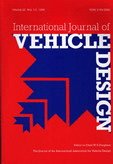
INTERNATIONAL JOURNAL OF VEHICLE DESIGN
Scope & Guideline
Charting New Paths in Mechanical Vehicle Design
Introduction
Aims and Scopes
- Vehicle Dynamics and Control:
Research on vehicle dynamics encompasses studies on motion control, stability, and performance optimization of vehicles, including automated and electric vehicles. - Sustainable Vehicle Technologies:
A significant emphasis on eco-friendly vehicle technologies, including energy management systems, lightweight materials, and low carbon design strategies. - Safety and Crashworthiness:
The journal addresses safety concerns through research on crashworthiness, collision avoidance systems, and the integration of advanced sensors for enhanced vehicle safety. - Multidisciplinary Optimization:
Focus on optimization techniques that integrate various engineering disciplines such as mechanics, electronics, and materials science for improved vehicle performance. - Intelligent Transportation Systems:
Exploration of intelligent transportation systems, including vehicle-to-vehicle communication, autonomous driving technologies, and smart traffic management. - Innovative Material and Structural Design:
Studies on advanced materials and structural configurations aimed at enhancing vehicle performance, safety, and sustainability.
Trending and Emerging
- Electric and Hybrid Vehicle Technologies:
There is a notable increase in research pertaining to electric and hybrid vehicle technologies, focusing on energy management, battery systems, and performance optimization. - Autonomous and Connected Vehicles:
Emerging themes include the development of autonomous driving technologies and vehicle-to-everything (V2X) communication systems, highlighting the industry's shift towards smart mobility solutions. - Advanced Simulation and Modelling Techniques:
Growing interest in advanced simulation methodologies for vehicle dynamics, crash testing, and thermal management, facilitating more accurate predictions and evaluations. - AI and Machine Learning Applications:
The integration of artificial intelligence and machine learning in vehicle design and control systems is rapidly increasing, showcasing innovative approaches to problem-solving. - Sustainability and Environmental Impact Assessments:
A rising trend towards evaluating the environmental impact of vehicle designs, promoting sustainability through innovative materials and manufacturing processes.
Declining or Waning
- Traditional Internal Combustion Engine Technologies:
As the industry shifts towards electric and hybrid vehicles, research focused solely on traditional internal combustion engines has decreased in prominence. - Basic Mechanical Design Principles:
Fundamental studies on basic mechanical design principles are being overshadowed by more complex and integrated approaches that consider multi-disciplinary aspects. - Conventional Safety Testing Methods:
Research relying on traditional safety testing methods is declining as newer, more dynamic simulation and modeling techniques gain traction. - Focus on Aesthetics over Functionality:
There is a diminishing emphasis on aesthetic design aspects that do not contribute to functionality or performance, as practicality and efficiency take precedence. - Simple Control Algorithms:
Research on basic control algorithms is being replaced by more sophisticated approaches utilizing machine learning and adaptive control strategies.
Similar Journals

SAE International Journal of Vehicle Dynamics Stability and NVH
Exploring the Dynamics of Stability and Noise in VehiclesSAE International Journal of Vehicle Dynamics Stability and NVH is a prestigious publication dedicated to advancing knowledge in the domains of automotive engineering, computational mechanics, control and optimization, and mechanical engineering. Published by SAE International, this journal boasts an impressive impact factor within its category, achieving a Q1 ranking in 2023 across multiple fields, including automotive engineering and computational mechanics. With ISSN 2380-2162 and E-ISSN 2380-2170, it serves as a crucial platform for the dissemination of innovative research and technological advancements in vehicle dynamics and noise, vibration, and harshness (NVH) analysis. Researchers, professionals, and students benefit from the journal's rigorous peer-review process and its commitment to high-quality publications. With a wide-reaching influence and an emphasis on interdisciplinary approaches, the journal is pivotal for those seeking to contribute to the evolution of vehicle technology and related areas.
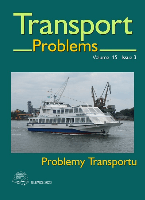
Transport Problems
Transforming Ideas into Solutions for a Sustainable FutureTransport Problems, published by the Silesian University of Technology, Faculty of Transport, is a distinguished open-access journal that has been advancing scholarship in the fields of Automotive Engineering, Mechanical Engineering, and Transportation since its inception in 2007. With an ISSN of 1896-0596 and an E-ISSN of 2300-861X, this journal serves as a vital platform for researchers and practitioners to disseminate innovative research findings and explore fundamental issues in transport systems and technologies. Based in Poland, the journal covers various topics including transportation logistics, vehicle dynamics, and environmental impacts, thereby addressing critical challenges faced in the transportation sector globally. As reflected in its Scopus rankings, the journal occupies respectable quartiles and continues to contribute valuable insights to the academic community. By making its content freely accessible, Transport Problems significantly enhances the ability of researchers and students alike to engage with the latest developments in transport engineering and contribute to this ever-evolving field.

SAE International Journal of Commercial Vehicles
Shaping the Landscape of Commercial Vehicle EngineeringSAE International Journal of Commercial Vehicles, published by SAE International, stands at the forefront of automotive engineering research, fostering innovation and development in the commercial vehicle sector. With an ISSN of 1946-391X and an E-ISSN of 1946-3928, the journal plays a critical role in disseminating high-quality research, theoretical advancements, and practical applications across various facets of commercial vehicles. As part of the notable SAE publication portfolio, it enjoys a respectable 2023 Q3 ranking within the automotive engineering category and holds a significant position at Rank #72/125 in Scopus, reflecting its growing impact and relevance. The journal's themes encompass innovative technologies, safety advancements, and regulatory developments, providing researchers and industry professionals with vital insights essential for tackling contemporary challenges. Though currently not an open-access publication, its contribution to the engineering community is invaluable, paving the way for future studies and collaborative efforts in the automotive field.
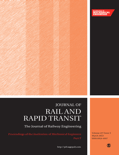
PROCEEDINGS OF THE INSTITUTION OF MECHANICAL ENGINEERS PART F-JOURNAL OF RAIL AND RAPID TRANSIT
Exploring Breakthroughs in Rail Systems and InfrastructurePROCEEDINGS OF THE INSTITUTION OF MECHANICAL ENGINEERS PART F - JOURNAL OF RAIL AND RAPID TRANSIT is a premier academic journal published by SAGE Publications Ltd, focusing on the latest advancements in rail transportation and rapid transit systems. With an ISSN of 0954-4097 and E-ISSN of 2041-3017, this journal has garnered significant attention in the field, achieving a Q2 category ranking in Mechanical Engineering and securing a Scopus rank of #192 out of 672, placing it in the 71st percentile. Covering converged years from 1989 to 2024, it provides a platform for innovative research and discussions that address the complexities and evolving technologies within the rail industry. Its publication draws contributions from esteemed researchers, professionals, and students alike, fostering a crucial dialogue on sustainability, efficiency, and advancements in transit infrastructure. While the journal is not open access, it remains a vital resource for those committed to pushing the boundaries of mechanical engineering and rail systems development.
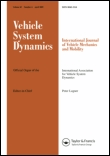
VEHICLE SYSTEM DYNAMICS
Advancing automotive excellence through cutting-edge research.VEHICLE SYSTEM DYNAMICS, published by Taylor & Francis Ltd, is a premier journal dedicated to advancing the field of automotive and mechanical engineering. With an impressive impact factor and categorized in the top quartiles (Q1) of Automotive Engineering, Mechanical Engineering, and Safety, Risk, Reliability, and Quality, this journal has established itself as a vital resource for researchers, industry professionals, and academics alike. Spanning from 1972 to 2024, VEHICLE SYSTEM DYNAMICS focuses on disseminating high-quality, peer-reviewed research that addresses critical challenges and innovations in vehicle dynamics and system performances. The journal is based in the United Kingdom and continues to contribute significantly to the global discourse on safe and efficient vehicle design and operation. Readers can access the journal's content through various platforms, ensuring the latest research is readily available to inform and inspire future advancements in the field.

Ingineria Automobilului
Empowering Engineers to Shape Tomorrow's VehiclesIngineria Automobilului is a prominent journal dedicated to advancing knowledge in the field of automotive engineering. Published by the SOC AUTOMOTIVE ENGINEERS ROMANIA, this journal serves as a vital platform for the dissemination of high-quality research, innovative methodologies, and groundbreaking applications in automotive technology. With an ISSN of 1842-4074, it provides an essential resource for researchers, professionals, and students who are committed to the development and enhancement of automotive systems. Although the journal currently does not offer open access, its contributions are crucial for ongoing advancements in automotive design, safety, and sustainability. The publication aims to foster collaboration between academia and industry, emphasizing the importance of interdisciplinary approaches in solving complex challenges facing the automotive sector today. By facilitating discussions on emerging technologies and engineering practices, Ingineria Automobilului continues to play a pivotal role in shaping the future of automotive engineering.

INTERNATIONAL JOURNAL OF CRASHWORTHINESS
Elevating Standards in Engineering SafetyThe INTERNATIONAL JOURNAL OF CRASHWORTHINESS, published by Taylor & Francis Ltd, is a prestigious journal established in 1996 that focuses on the critical field of crashworthiness engineering across several domains, including industrial, manufacturing, mechanical engineering, and transportation. With an impressive Q2 ranking in both Industrial and Manufacturing Engineering and Mechanical Engineering, as well as a Q3 ranking in Transportation, this journal serves as a vital platform for disseminating innovative research and cutting-edge developments. Although currently not an open-access publication, it provides invaluable insights for researchers, professionals, and students seeking to enhance safety and structural performance in crash-related scenarios. With the ISSN 1358-8265 and E-ISSN 1754-2111, the journal continues to facilitate important conversations aimed at advancing the field and improving public safety. Stay informed with the latest findings and contribute to this evolving discipline by exploring the INTERNATIONAL JOURNAL OF CRASHWORTHINESS today.
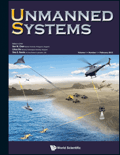
Unmanned Systems
Connecting Researchers to the Future of Unmanned SystemsUnmanned Systems is a leading academic journal published by WORLD SCIENTIFIC PUBL CO PTE LTD based in Singapore, that serves as a premier platform for research and advancements in unmanned vehicle technology. Covering a broad range of disciplines, the journal ranks in the Q1 category for Aerospace Engineering, Automotive Engineering, Control and Optimization, and Control and Systems Engineering as of 2023, showcasing its high impact within these fields. With impressive Scopus rankings placing it in the top tiers of its categories—8th in Control and Optimization and 14th in Aerospace Engineering—Unmanned Systems stands out as a vital resource for researchers, professionals, and students eager to explore current trends and innovations. While the journal operates under a traditional access model, it remains committed to disseminating quality original research, reviews, and case studies that contribute significantly to the understanding and application of unmanned technologies from 2013 through 2024.
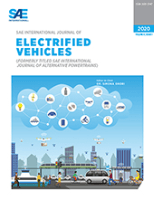
SAE International Journal of Electrified Vehicles
Pioneering Research for Sustainable Vehicle SolutionsSAE International Journal of Electrified Vehicles, published by SAE International, is a pioneering journal dedicated to the field of electrified transportation. Operating since 2020, this journal offers a crucial platform for researchers, engineers, and practitioners who are at the forefront of advancements in vehicle electrification and related technologies. With an ISSN of 2691-3747 and an E-ISSN of 2691-3755, it is indexed within respected databases, showcasing its commitment to high-quality research in Automotive Engineering and Fuel Technology. As part of the Q3 category in the 2023 rankings for both automotive and energy sectors, the journal facilitates the exchange of innovative ideas and groundbreaking studies that contribute to the evolution of the electrified vehicle industry. While currently not open access, the journal offers various subscription options for readers, making valuable insights accessible to a broad audience. Conducting research in this dynamic field, the SAE International Journal of Electrified Vehicles is vital for professionals striving to push the boundaries of technology and sustainability in modern transportation.
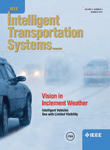
IEEE Intelligent Transportation Systems Magazine
Advancing Technologies for Efficient TransportationIEEE Intelligent Transportation Systems Magazine, published by the IEEE-Institute of Electrical and Electronics Engineers Inc., is a leading journal in the fields of automotive engineering, computer science applications, and mechanical engineering. With an impressive impact factor reflected in its 2023 rankings, this journal sits in the top quartile (Q1) across multiple engineering categories, making it an essential resource for researchers and professionals dedicated to advancing the intelligent transportation systems landscape. The magazine covers a diverse array of topics from vehicle technology innovations to traffic management solutions, aimed at improving transportation efficiency, safety, and sustainability. Since its inception in 2009, the publication has established a solid reputation for disseminating cutting-edge research and practical applications in intelligent transportation, all while remaining an accessible resource for academic and industrial stakeholders alike. Subscribe today to stay at the forefront of transformative transportation technologies!